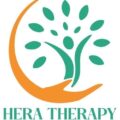Addiction is a complex condition that affects millions of people worldwide, yet it often develops gradually, making it difficult to recognize in its early stages. Drug addiction (substance use disorder) doesn’t discriminate, it can affect anyone, regardless of age, background, or circumstances. Understanding the warning signs can be the first step toward seeking help and reclaiming control of your life.
If you’re wondering whether you or someone you care about might be struggling with addiction, this self-assessment guide will help you identify key warning signs that shouldn’t be ignored. Remember, recognizing these signs isn’t about judgment, it’s about awareness and taking the first step toward healing.
Understanding Addiction: More Than Just Willpower
Before diving into the warning signs, it’s important to understand that addiction is a medical condition, not a moral failing. Substance use disorders affect the brain’s reward system, making it increasingly difficult to control use despite negative consequences. The sooner you can identify the symptoms of addiction, the sooner you can seek appropriate support and treatment.
10 Critical Warning Signs to Watch For
Here are the warning signs you should look out for to ensure you respond to addiction in a timely way:
1. Loss of Control Over Substance Use
One of the most significant indicators of developing addiction is the inability to control how much, how often, or when you use substances. You might find yourself using more than intended, for longer periods, or in situations where you planned to abstain. This loss of control often occurs gradually, making it one of the more subtle signs and symptoms of addiction (physical and mental) to recognize initially.
2. Continued Use Despite Negative Consequences
When substance use continues despite obvious problems in relationships, work, health, or legal matters, this is a major red flag. You might notice conflicts with family members, declining job performance, financial difficulties, or health issues, yet feel unable to stop using. This pattern indicates that the substance has become a priority over other important aspects of life.
3. Increased Tolerance and Escalating Use
Tolerance develops when your body adapts to a substance, requiring larger amounts to achieve the same effects you once experienced with smaller doses. If you find yourself needing more of a substance to feel “normal” or to achieve the desired effect, this is one of the key physical signs of addiction that shouldn’t be ignored.
4. Withdrawal Symptoms When Not Using
Physical and emotional discomfort when attempting to stop or reduce use is a clear indicator of physical dependence. Withdrawal symptoms can range from mild discomfort to severe physical and psychological distress, including anxiety, irritability, nausea, sweating, tremors, or mood swings. These symptoms often drive continued use to avoid discomfort.
5. Neglecting Responsibilities and Relationships
Recognizing the warning signs of substance use includes noting when important responsibilities begin to suffer. This might manifest as missing work frequently, neglecting family obligations, abandoning hobbies you once enjoyed, or isolating from friends and loved ones. The substance begins to take precedence over previously valued activities and relationships.
6. Preoccupation with Obtaining and Using Substances
When thoughts about using, obtaining, or recovering from substance use begin to dominate your mental space, this indicates a concerning shift in priorities. You might find yourself planning your day around substance use, thinking about your next opportunity to use, or feeling anxious when supplies are running low.
7. Unsuccessful Attempts to Quit or Cut Back
Repeated failed attempts to stop or reduce use, despite genuine desire and effort, is a significant warning sign. You might set limits for yourself, make promises to quit, or attempt to moderate your use, only to find yourself returning to previous patterns. These cycles of attempting and failing to control use are common in addiction.
8. Using Substances to Cope with Emotions
While many people occasionally use substances to relax or socialize, relying on them as your primary method of coping with stress, anxiety, depression, or other difficult emotions is concerning. If you find yourself automatically reaching for substances when facing challenges or uncomfortable feelings, this pattern may indicate developing dependence.
9. Secrecy and Deception About Use
Hiding your substance use from others, lying about the amount or frequency of use, or going to great lengths to conceal evidence of use are significant behavioral changes that often accompany addiction. This secrecy might stem from shame, fear of judgment, or awareness that others would be concerned about your use patterns.
10. Physical and Mental Health Changes
Identifying the symptoms of addiction includes recognizing changes in your physical and mental well-being. These might include unexplained weight loss or gain, changes in sleep patterns, declining personal hygiene, frequent illness, memory problems, difficulty concentrating, increased anxiety or depression, or mood swings. These changes often develop gradually and may be dismissed as stress-related.
Physical and Mental Signs: A Comprehensive View
The signs and symptoms of addiction (physical and mental) often overlap and reinforce each other. Physical symptoms might include changes in appetite, sleep disturbances, unexplained injuries, or deteriorating physical health. Mental symptoms can include mood swings, increased irritability, anxiety, depression, or cognitive changes like memory problems or difficulty concentrating.
Understanding that addiction affects both the mind and body helps explain why recovery often requires comprehensive treatment addressing both physical and psychological aspects of the condition.
Moving Forward: Hope and Healing
Recognizing these warning signs doesn’t mean you’re destined for a life of struggle. Addiction is a treatable condition, and millions of people have successfully overcome substance use disorders and gone on to live fulfilling, healthy lives. The key is acknowledging the problem and taking that first step toward seeking help.
Recovery is possible, and it begins with awareness. If you’ve recognized several of these warning signs in yourself, remember that seeking help is a sign of strength, not weakness. Treatment options are available, and support systems exist to help you through the recovery process.
Taking Action
If this self-assessment has raised concerns about your substance use or that of someone you care about, don’t wait to seek help. Early intervention often leads to better outcomes and can prevent the progression of addiction. Reach out to a healthcare provider, addiction specialist, or mental health professional who can provide proper assessment and guidance.
Remember, you don’t have to face this alone. Support is available, and recovery is not only possible—it’s happening every day for people who take that first brave step toward healing.
If you or someone you know is struggling with substance use, please reach out to Hera Therapy to link with an addiction specialist. Recovery resources and professional support are available to help you on your journey toward healing and wellness.

